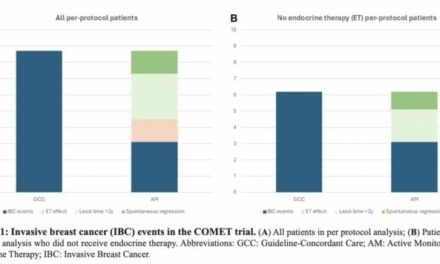Breast cancer organization Susan G. Komen has announced almost $26 million in funding for new research projects that focus on metastatic breast cancer, developing more-effective treatments, and addressing disparities in breast cancer outcomes. This year’s grant slate focuses on key areas that will help the organization achieve its goal to halve the current number of breast cancer deaths in the United States by 2026.
“In order to save more lives, we must address the main cause of breast cancer deaths: metastatic breast cancer,” says George Sledge, MD, Susan G. Komen’s chief scientific advisor for the profession of medicine, and chief of oncology in the department of medicine at Stanford University.
It is estimated that more than 154,000 women in the United States are living with metastatic breast cancer—the most advanced stage of breast cancer, which often involves spread to the bones, brain, liver, and lungs. There is currently no cure for metastatic breast cancer, and it is responsible for almost all of the 42,000 breast cancer deaths in the United States each year.
Among the 60 grants Komen awarded, 38 are focused on understanding and treating metastatic breast cancer. Grants were also given to researchers who are developing new therapies for aggressive subtypes such as triple-negative breast cancer, investigating drug resistance, and addressing health disparities in breast cancer outcomes among specific communities.
“Breast cancer does not affect everyone equally and with the grants we’re funding this year, we’re moving closer to new therapies for aggressive forms of cancer, understanding why treatment doesn’t work in some patients, and making sure everyone has access to the care they need,” says Paula Schneider, CEO of Susan G. Komen.
Komen’s 2019 portfolio includes 60 grants totaling $25,689,384. A breakdown shows:
- 38 grants focused on better understanding of metastasis, why it occurs, and how to prevent and treat metastatic breast cancer.
- 39 grants for catalyzing the development of new therapies for all stages of breast cancer.
- 16 grants looking into novel treatments for triple-negative breast cancer.
- 14 grants for investigating why drugs stop working in some patients.
- 9 grants focused on disparities in breast cancer outcomes.
- 5 grants that apply big data technologies such as artificial intelligence and machine learning to breast cancer research.
Individual studies may be classed in more than one category, bringing the total to more than 60.
The new funds bring Komen’s total research investment in breast cancer to more than $1 billion since its launch in 1982, and they raise Komen’s investment in research focused on metastatic breast cancer to $210 million. Since its inception, Komen has funded more breast cancer research than any other nonprofit organization outside of the US government. Grants are contingent upon signed and executed contracts with Komen.
For more information see Komen.
Featured image: Breast cancer ribbon. Photo © Roman Tsubin courtesy Dreamstime (ID 55240471).





